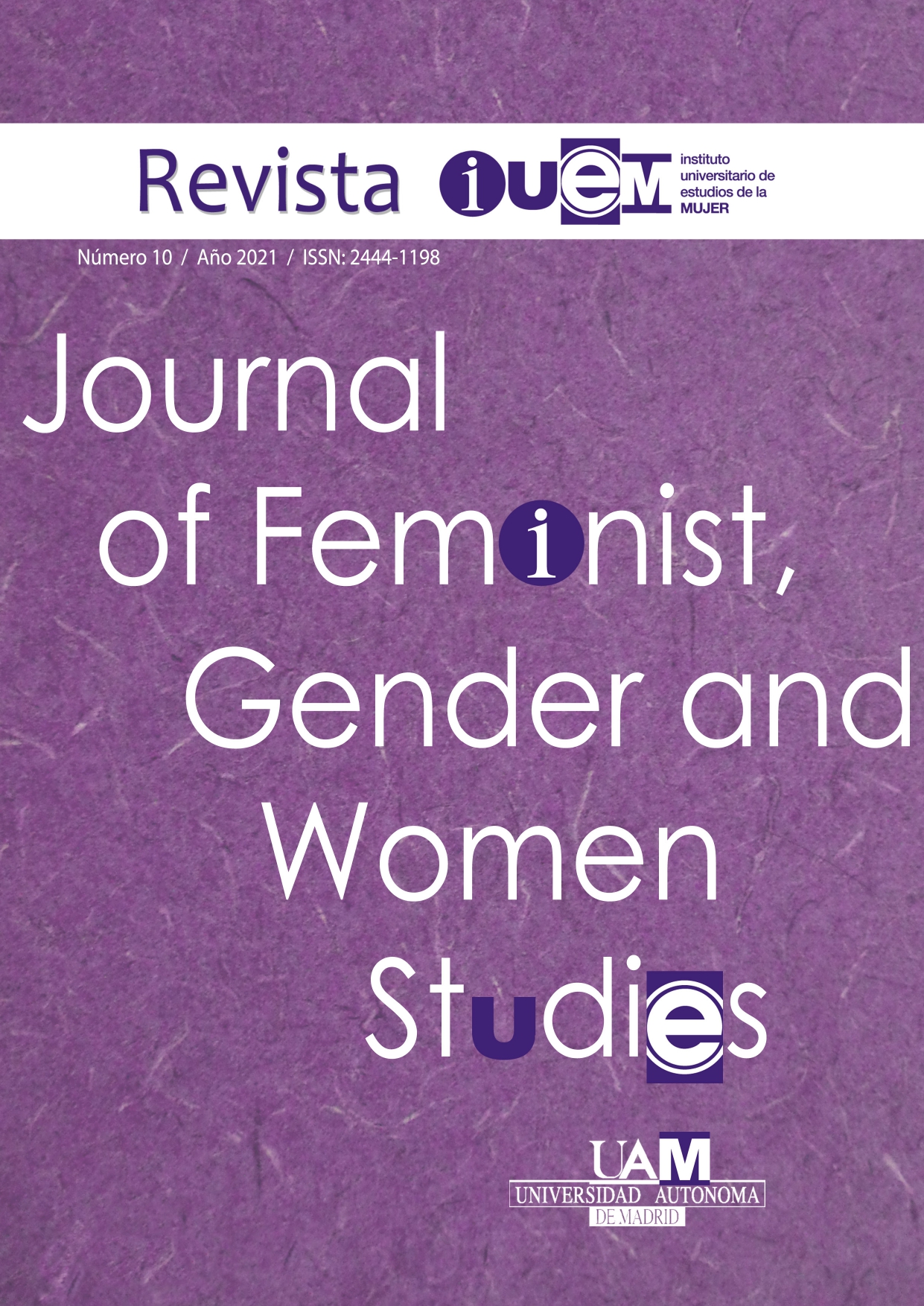Visiones de la instrucción femenina en España (siglos XVI y XVII): Luis de León, Juan Luis Vives y Joseph Rojo
Palabras clave:
Educación femenina, mujeres, Renacimiento, BarrocoResumen
El presente trabajo analiza los diferentes puntos de vista en torno a la cuestión de la instrucción y la educación femeninas en los siglos XVI y XVII en España. Para lograr esta meta, se acude al análisis de tres testimonios, dos de ellos fundamentales para los estudios sobre la materia: la Instrucción de la mujer cristiana de Juan Luis Vives y La perfecta casada de Luis de León. Además, sendos testimonios se comparan con el Espejo de ilustres y perfectas señoras de Joseph Rojo. Esta obra data, aproximadamente, de las últimas décadas del siglo XVII. Tras haber trabajado con las ideas que cada autor refleja en su texto, véase infancia, formación intelectual, importancia de la virginidad o el ejercicio de las tareas domésticas, es posible obtener como conclusión una línea de pensamiento que parte de la misoginia medieval y continúa avanzando conforme se gestan y aclimatan los cambios de los siglos posteriores. El primer elemento de esta representación es La perfecta casada, pues, aunque se escribe después de la Instrucción de la mujer cristiana, los valores que refleja presentan mayor proximidad con los planteamientos medievales. El texto más avanzado es el de Rojo, más cercano a las nuevas ideas de la Ilustración. La obra permite comprobar si los cambios estudiados generaron una verdadera evolución en el pensamiento colectivo o si, por el contrario, no lograron modificar la conducta de los habitantes de la España del Siglo de Oro.
Descargas
Citas
Aristóteles. 1999. Historia de los animales, trad. de José Vara Donada, Madrid: Akal.
Breitenstein, Renée-Claude. 2018. Célébrer les femmes entre éloge et défense: stratégies d'accréditation dans trois éloges collectifs de femmes imprimés au tournant des XVe https://doi.org/10.4000/rhetorique.633
et XVIe siècles, Exercices de rhétorique [en línea], 11, [20 de junio del 2018].
Capel Martínez, Rosa María. 2007. Mujer y educación en el Antiguo Régimen, Historia de la educación, 26: 85-110.
Cárceles Laborde, Concepción. 1993. Humanismo y educación en España (1450-1650), Pamplona: Ediciones Universidad de Navarra.
Charlton, Anna. 1999. Las mujeres y los animales, Teorema, 18 (3): 103-115.
Dialogyca BDDH. 2019. Consultado el 19/08/2019. www. dialogycabddh.es
Córdoba, Martín de. 1956. Jardín de nobles doncellas, ed. De Félix García, Madrid: Religión y Cultura. Eiximenis, Francesc. 2007. Carro de las donas, ed. de
Carmen Clausell Nácher, Madrid: Fundación Universitaria Española-Universidad Pontificia de Salamanca.
Horowitz, Maryanne Cline. 1976. Aristotle and Woman. Journal of History of Biology, 9 (2): 183-213. https://doi.org/10.1007/BF00209881
León, Luis de. 2002. La perfecta casada, ed. de Javier San José Lera, Madrid: Espasa-Calpe (Planeta-DeAgostini).
Martí, Sacramento. 2004. "El oficio de mujer en las obras de Juan Luis Vives y Fray Luis de León". En Lerner, Isaías; Nival, Roberto y Alonso, Alejandro (eds.), Actas del XIV Congreso de la Asociación Internacional de Hispanistas, vol. 2, 375-381. Nueva Jersey: Juan de la Cuesta-Hispanic Monographs.
Martín Casares, Aurelia. 2002. Las mujeres y la ''Paz en la casa'' en el discurso renacentista, Chronica Nova, 29: 217-244.
Monsegú, Bernardo. 1961. Filosofía del humanismo de Juan Luis Vives, Santander: Editorial Cantabria.
Montalvo Mareca, Sergio. 2019. Rojo, José. Espejo de ilustres y perfectas señoras, en Dialogyca BDDH (Biblioteca Digital de Diálogo Hispánico), registro BDDH328. Puesto en red julio 2019. ISBN 978-8-4691-8286-4.
Montalvo Mareca, Sergio. 2018. Renacimiento y educación: Juan Luis Vives y la enseñanza de la mujer, Actas electrónicas del 8º Simposio Anual de Español, 8: 51-58.
Moreno Gallego, Valentín. 2006. La recepción hispana de Juan Luis Vives, Valencia: Generalitat valenciana.
Muguruza Roca, Isabel. 2010. Juan Luis Vives, el exemplum y la pedagogía femenina. En Gamba Corradine, Jimena y Bautista Pérez, Francisco (eds.), Estudios sobre la Edad Media, el Renacimiento y la temprana Modernidad, 681-689. Salamanca: Instituto Biblioteca Hispánica del
Cilengua.
Nausia Pimoulier, Amaia. 2013. Talis mater, talis filia: las malas madres en los siglos XVI y XVII, Memoria y Civilización, 16: 27-54. https://doi.org/10.15581/001.16.27-54
Ortega López, Margarita. 1988. La educación de la mujer en la Ilustración española, Revista de Educación, Extra 1: 303-325.
Rojo, Joseph. 1601-1700?. Espejo de ilustres y perfectas señoras [Manuscrito], Madrid: BNE, mss. 8802.
Vives, Juan Luis. 1995. Instrucción de la mujer cristiana, trad. de Juan Justiniano y ed. de Elizabeth Teresa Howe, Madrid: Fundación Universitaria Española-Universidad Pontificia de Salamanca
